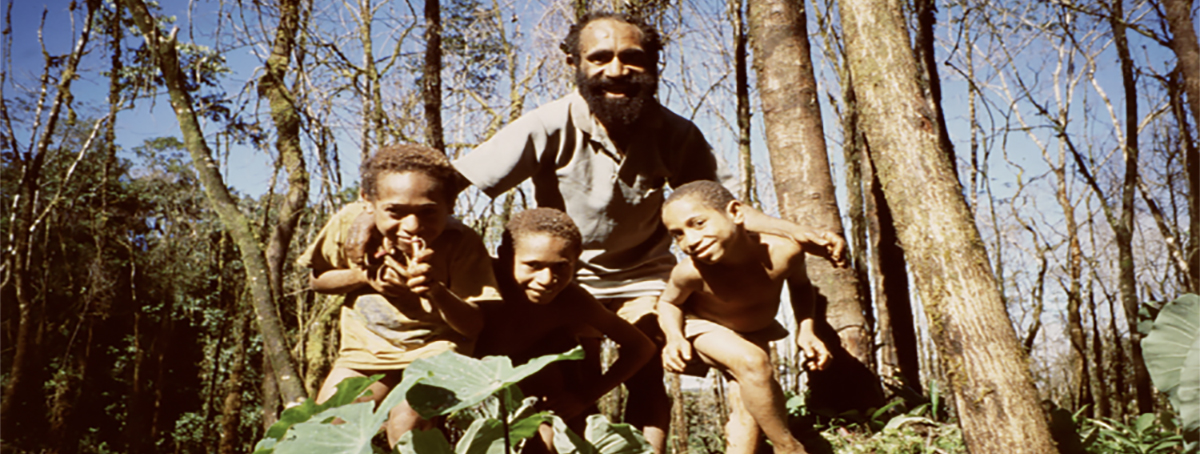Life Itself in the Pacific
Once the ground and matter of fact basis for Euro-American conceptualizations of the social, the relationally defined concepts and corollaries of ‘nature’ & ‘culture’ also informed the critical assumptions hampering ethnographic attempts to describe Pacific metaphysics in their own terms. Now these very facts of life have changed and the old guarantees are gone – destiny has been replaced by opportunity. ‘Life Itself’ stands for the biological and social reimagination of these ideas – from fears of technology taking over, social control and ecological collapse, to the rapture of new freedoms for body, mind and soul. ‘Life Itself’ signifies the wider transformations arising from the conceptual collapse of nature and culture, and which for our purposes also provides affinities to ideas that have been key to critiques of the theoretical assumptions that have framed much Pacific anthropology: e.g. society, individual, scale, relation, substance, form, flow etc.
As an analytical category, ‘Life Itself’ was first named by Foucault, and developed simultaneously by Franklin and Rose, and taken up by Haraway amongst others since. Arising alongside the Human Genome Project’s efforts to decode human DNA, ‘Life Itself’ captured the excitement and anxiety regarding the new possibilties and responsibilties carried by biological advancements. Scientific developments accompanied social transformations: each provided a culture or ‘enabling technology’ for the other. Whilst these technological developments and conceptual transformations have already proven key productive vantage points for re-thinking ethnographic description and analysis in the Pacific, ‘life itself’ – and its associates ‘posthuman’ and ‘multispecies’ – increasingly appear in anthropological attempts to reconceptualize the disciplinary project, but have yet to be explored comparatively as such in a Pacific context.
Life Itself in the Pacific – Download PDF
Royal Society of Edinburgh
CRF European Travel Fellowships – Visits to Scotland, 2014.
Dr. Borut Telban
Institute of Anthropological and Spatial Studies, Research Centre of the Slovenian Academy of Sciences and Arts
Visiting: Department of Social Anthropology, University of St Andrews
Traversing Ontologies and Epistemologies in Anthropological Research
While exploring the life-worlds of the Amazonian people, with the apparent existence of one culture and many natures, several influential anthropologists have recently developed intriguing concepts of multi-naturalism, perspectivism and new animism. Instead of seeing other people’s articulations of their existence as ‘beliefs’ or ‘cultural perspectives’, and simultaneously rejecting a single unitary ontology of modern Euro-Americans, they conceive them as enunciations of different ‘realities’, ‘worlds’ or ‘natures’. All these approaches are no doubt worth further exploration and critical reflection, especially in the context of Pacific anthropology. Building upon years of ethnographic fieldwork in Papua New Guinea, I intend to engage in extended discussions and broad comparative research with my colleagues from the Department of Social Anthropology at the University of St Andrews, many of whom have gained their reputation as scholars of either Melanesia or Amazonia and have, in different ways, significantly contributed towards the ‘anthropology of life’.
Life Itself in the Pacific:
Tony Crook, Thomas Strong & Mia Browne
European Society for Oceanists, ESfO2018
Cambridge and London, 7-10 December 2018
https://www.pacific-studies.net/conferences/public.php?confID=3&action=session_detail&session=100

